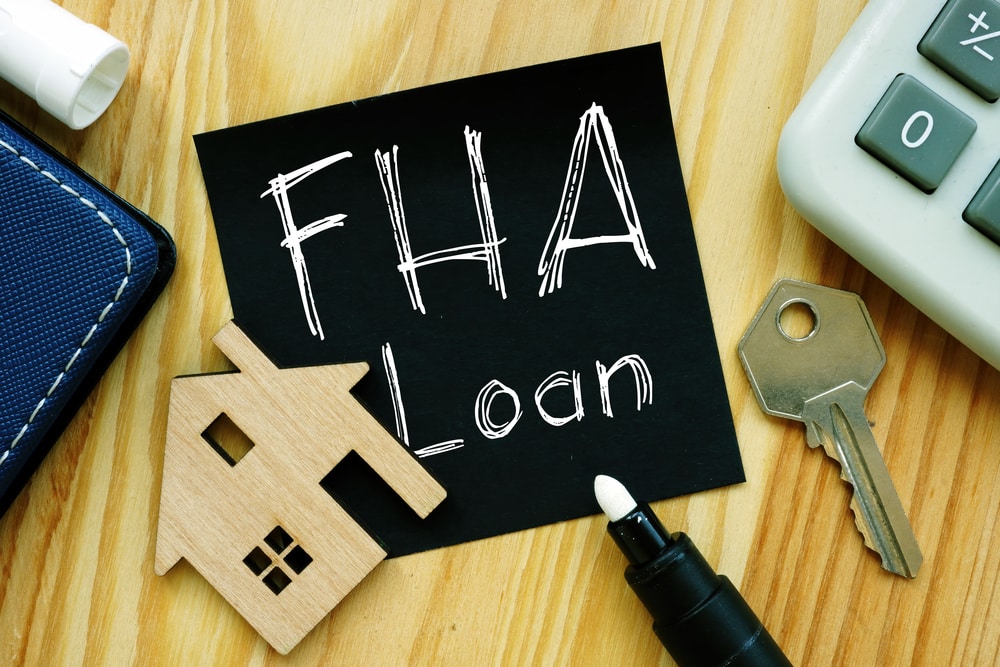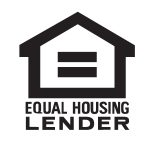FHA Loan (Federal Housing Administration) is the part of the Housing and Urban Development of USA Department that insures home loans approved by private lenders and banks. The minimum credit score requirement is 500 only and a 10% down payment. Overall, FHA is the best loan for buyers with debts, low credit scores, and below-average financial status.
Don’t worry even if you have bankruptcy or other bad debt records in your financial record, you are eligible for an FHA loan. Here in this guide, you’ll get to know all about FHA loan requirements, loan limits, and how to qualify for an FHA loan.
Let’s dig deep to know whether or not FHA is the right kind of loan for you!
Get Customized FHA Loan Offers for You!
What Is An FHA Loan?
FHA (Federal Housing Administration) is an agency regulated and operated by the Department of Housing and Urban Development. FHA loans are insured and backed by the government which means the organization is responsible for recovering all the losses in the future if somehow the applicant becomes a defaulter.
No doubt FHA loans have a minimum credit score and a 10% down payment requirement. But keep in mind that they come with high mortgage interest rates. Also, home buyers need to pay mortgage insurance.
You don’t have to be a first-time home buyer when applying for FHA loans. Let’s check some of the major benefits of getting FHA loans:
- Low credit score requirements as compared to other loan options.
- Minimum 10% down payment.
- Even buyers with bankruptcy and poor transaction records can apply.
- Closing costs can be compensated and rolled into your loan.
Key Requirements for FHA Loan:
Check below the criteria and certain requirements you must meet to get qualify for an FHA loan:
- Type of Property: FHA loan can be approved only if the property you are buying is your primary residence. It can’t be your second home or investment property.
- Minimum Credit Score: FHA’s minimum credit score for buyers is 500 but can be higher for FHA lenders. Higher credit scores will help you get a better FHA mortgage rate.
- Size of down payment: FHA minimum down payment is 3.5% if your credit score is 580 or higher. Whereas 10% of your credit score falls between 500 to 579.
- Inspection: A professional inspection is necessary to verify if the potential property fulfills the minimum property standards.
- 50% or less FHA (DTI) debt-to-income ratio: DTI income is the percentage of pre-tax income spent on credit cards, mortgages, or other monthly debts.
Use our debt-to-income ratio calculators to know your DTI score.
- PTI (Payment to Income) Ratio: It is the ratio of monthly mortgage installments to your monthly income. It can be as high as 40% of your minimum credit score is 580.
- Occupancy: You need to occupy the property within 60 days as soon as the FHA loan is approved and closed. It should be your primary home for at least 1 year. If such is not the case with you, we suggest exploring other loan options.
- Proof of Employment history: Make sure to maintain a proper record of your employment history for at least two years. Even if you have 30 days gap in that duration you owe an explanation.
- Home appraisal: your house must follow and meet the standards of FHA appraisal guidelines. That’s why FHA loans cost you more than a conventional loan option.
Also Read: Mortgage Preapprovals Vs. Prequalifications: Which one gets you home?
FHA Loan Down Payments
Down payment is the percentage of the buying price of the home to the size of your down payment. As we already discussed, the size of your down payment depends on your minimum credit score.
So, the better the credit score, the lower the down payment requirement. Although the minimum credit score requirement for FHA is 500. But still, it can vary depending on the FHA lender.
Want to calculate your monthly installments and cash-down payments?
Use our Mortgage Calculator to get an estimate!
FHA loan limits for 2023
FHA loan limit means the maximum amount a borrower can expect from a banking institution and FHA-approved lender. The FHA loan limits are set by the FHFA (Federal Housing Finance Agency) which are lower than that for conventional or conforming loans.
The minimum FHA loan limit is 65% of the conforming loans whereas the maximum is 150% of the conforming loans in the U.S.
| Total units | Loan limits for Low-cost area | Loan limits for High-cost area |
| One unit | $420,680 | $970,800 |
| Two units | $538,650 | $1,243,050 |
| Three units | $651,050 | $1,502,475 |
| Four units | $809,150 | $1,867,275 |
Want to know the FHA Mortgage limits in your local area?
Talk to our local mortgage loan officer or visit the U.S. Department of Housing and Urban Development (HUD).
You can also visit the official website of HUD to know the FHA mortgage limits in a specific country and state.
FHA HECM LOAN LIMITS:
HECM is the only reverse mortgage supported and insured by the federal government. Only senior citizens are eligible for FHA HECM loans. In 2023, FHA HECM (home equity conversion mortgage) increased abruptly and is now capped at $970,800. It’s the best option for senior owners to use their equity in retirement.
The FHA HECM loan limit and interest rate for senior homeowners depend on the youngest borrower’s age or their spouse’s age.
Other factors that affect FHA loan limits:
- One of the major factors is house market prices that keeps on fluctuating every year.
- Median home prices and national conforming limits also affect the FHA Loan limits.
- According to the U.S. Office of Management and Budget, the Local area for housing is referred to as MSA (metropolitan statistical area). MSA also includes the median home price to calculate your FHA mortgage limit.
- As we already discussed, the minimum(65%) and maximum loan amount (150%) for FHA is limited by U.S. statute. and it depends on the conforming loans.
FHA Mortgage Insurance
One of the drawbacks of FHA mortgages is it is mandatory to pay a mortgage insurance premium (MIP) no matter what. As it is easier for the appliers to get it approved based on the low credit score and low down payment. So FHA lender makes sure to recover losses in case you fail to pay the monthly mortgage installments or become a defaulter in the future.
Mortgage Insurance premium depends on the size of the down payment. A 10% down payment indicates, MIP (Mortgage Insurance premium) for about 11 years. Whereas a lower or 3.5% down payment, you may have to pay MIP for the whole of your life.
There are various factors such as our loan-to-value (LTV) ratio. used to calculate MIP. Usually, it is 1.75% of your loan amount.
FHA Interest Rates
As you know FHA loans are backed by the government so that convinces the FHA lenders to approve your application and offer you a lower interest rate in return. The FHA mortgage rate interest depends on many factors including
- Housing market interest rates
- your monthly income
- credit score
- The amount you want to borrow
- The size of your down payment amount
- PTI and DTI ratio etc
FHA Income Requirements
FHA applicant needs to have a steady record of an employment history of a minimum of 2 years without any break. Your monthly income should be worthy, legal, and verifiable. So you need to submit the documents such as
- pay stubs
- federal tax returns
- bank statements to your lender.
- W-2s and others if asked by your lender.
Different types of FHA Loans
Various types of FHA loans are available depending on your annual income, credit score, and requirement of the course. But make sure to choose the right kind of FHA loan. Once you have made your decision, it’ll limit the type of home and how you will spend the loan you receive.
Keep in mind that terms and conditions may slightly vary depending on one lender to another. Don’t worry even if these FHA Loan types are unable to satisfy your loan requirements, there are several other government loan options. Now, Let’s discuss some of the most popular FHA loan classifications.
FHA Rate/Term Refinances:
This loan option works best for those who wish to take advantage of lower interest rates and yet are still stuck in other mortgages. Also, a good option for borrowers who have recently improved their credit score. This loan type will help you get a lower rate using the FICO® Score median. The amount of refinancing loan you can borrow depends on your FICO score.
FHA Streamline:
An FHA Streamline is useful for all the existing FHA loan borrowers to gain the special benefits of lower mortgage interests. It allows you to refinance your existing mortgage rate and MIP (mortgage insurance premium).
Another benefit is less documentation required for home appraisal, employment history, and annual income. as you are already an approved FHA borrower.
Cash-Out Refinance
To get approved for Cash-out refinance loan, you need a minimum of 620 median credit score. Make sure you have at least 15% equity in your home. Also, full documentation is required for:
- Employment verification
- Income
- Assets and others
FHA 203(k) Loan
Hard to find such loans! It is further classified as Standard loans and limited loans. But luckily if you get approved for FHA 203(K) loans, you can buy and make renovations using the single loan. But still, it is not an affordable choice for many first-time home borrowers. You always have to maintain a minimum FHA Loan balance of $5000.
Also Read: VA Home Loans – Requirements & Rates For Veterans Loans
FHA loans Vs. Conventional Loans
| FHA | Conventional | |
| Minimum credit score | 620 | 500 |
| Loan Terms & Conditions | 8-30 years | 10-30 years |
| Minimum down payment | 3% | 3.5% |
| Loan limits | $647,200 up to $970,800 | $420,680 to $970,800 |
| Interest structure | Fixed or variable | Fixed or adjustable. |
| Loan supported by: | Fannie Mae or Freddie Mac | FHA (Federal Housing Administration) |
Is an FHA loan right for you?
Now you know everything about the benefits and limitations of FHA loans or non-conforming loans. FHA loans are supported by the government and do not have stringent loan requirements.
Regardless of the type of FHA loan, you plan to borrow, keep in mind that you have to pay the closing cost which is 1-3% of the buying price.
For more details and better options, contact USM corporation at info@usmortgage.com





